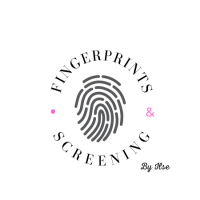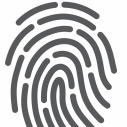Fingerprinting for FINRA Registration in the U.S.
Fingerprinting for FINRA Registration in the U.S.
Are you working in the financial sector and do you or one of your employees need to complete a FINRA registration? Then fingerprinting is a mandatory part of this process. From the Netherlands (or elsewhere in Europe) this can easily be arranged with us.
What is FINRA?
FINRA (Financial Industry Regulatory Authority) is the U.S. regulator for broker-dealers and registered representatives in the securities industry. Any professional who wants to sell securities, provide investment advice, or work as a broker-dealer on the U.S. market must be registered with FINRA. This process is carried out in cooperation with the SEC (Securities and Exchange Commission).
FINRA operates under the supervision of the SEC and has been authorized by Congress to protect American investors by ensuring that the broker-dealer industry operates fairly and honestly. It creates and enforces rules governing the activities of all registered broker-dealer firms and brokers in the United States.
When is fingerprinting required?
Anyone registering with FINRA (for example, via the U4 form in Web CRD) must have their fingerprints taken. This applies to, among others:
- Partners and directors
- Officers and compliance staff
- Registered representatives
Why does FINRA require fingerprints?
FINRA requires fingerprints to ensure the reliability and integrity of everyone active in the U.S. financial sector. With these fingerprints, the FBI conducts a background check. This is mandatory under the Securities Exchange Act (Rule 17f-2) and applies to all registered brokers, partners, officers, and employees.
The background check helps FINRA and the SEC to:
- Identify individuals with a relevant criminal record,
- Prevent individuals with fraud or integrity issues from entering the securities market,
- Keep the financial industry transparent and safe for investors.
§ 240.17f-2 (a) “(...) each member of a national securities exchange, broker, dealer, registered transfer agent, and registered clearing agency shall require that all of its partners, directors, officers, and employees be fingerprinted and shall submit such fingerprints of such persons to the Attorney General of the United States or his or her designee for identification and appropriate processing.”
Fingerprints must be taken within 30 days of registration, and the process must be carried out at an approved fingerprinting facility by a qualified fingerprint technician.
For FINRA, fingerprinting is therefore an essential part of the screening process, ensuring that only qualified and trustworthy individuals are granted registration and allowed to operate in the U.S. securities industry.
How does the process work?
Request the official fingerprint cards from FINRA (via your compliance officer or directly from your organization).
- Schedule an appointment with us for fingerprinting. We will take the fingerprints professionally and complete the cards correctly together with the employee.
- Send the fingerprint cards to FINRA
- From abroad: you or your organization send the cards to FINRA.
- From within the U.S.: the fingerprint cards are submitted to Sterling. We can also handle the shipping for you – always securely via FedEx.
- Complete the online registration in Web CRD (U4 form) Once the fingerprint cards are processed, FINRA will automatically link the results to the employee’s record.
What should you bring to the fingerprint appointment?
To complete the fingerprint cards properly, the employee must bring:
- Organization name (as registered with FINRA, verifiable via BrokerCheck)
- Organization CRD number
- If available: the employee’s individual CRD number
- A valid passport
Why is a financial license required?
A financial license is required to work in financial services. This includes the sale of securities, insurance products, and derivatives. In addition, a license is required to trade futures or commodities on a futures exchange in the U.S. Anyone who wants to legally sell securities or provide investment advice in the United States must be registered with FINRA, which supervises all securities firms operating within U.S. borders.
Broker-dealer (investment firm)
A broker-dealer is a financial institution that buys and sells securities on behalf of its clients. The broker-dealer must be licensed by FINRA, which regulates the securities industry in the United States.
To become a broker-dealer, you must:
- Have office space where you conduct business (this may be virtual),
- Employ at least one full-time investment adviser or registered representative,
- Register with the SEC as an investment adviser if you plan to provide advice on buying or selling investments.
How to register with FINRA
FINRA is a self-regulatory organization that oversees more than 5,000 broker-dealers and banks in the U.S. It is also responsible for regulating more than 200,000 registered representatives working at these institutions and other financial services firms.
To become a registered representative with FINRA, you must complete the registration process – this includes passing various securities law and regulatory exams and meeting certain educational requirements (which vary depending on your role).
FINRA requirements
- You must meet FINRA requirements,
- Take a FINRA exam,
- Pass the FINRA exam.
Most common fingerprint result status codes
CLER – "Clear" Indicates no criminal record was found for the fingerprint transaction submitted to the FBI.
RAPP – "Record of Arrest and Prosecutions" (RAP sheet) Indicates that the FBI returned Criminal History Record Information (CHRI). The CHRI is available to authorized users. Once FINRA completes its disclosure review of the CHRI details, the fingerprint status is updated to COMP (Complete).
ILEG – "Illegible" Indicates that the FBI determined the fingerprints were illegible. If three fingerprint submissions are returned as illegible for the same person, FINRA will request an FBI name check instead of fingerprint processing.
What happens if you do not comply with FINRA rules?
Sanctions for misconduct include fines, suspensions, and, in cases of severe misconduct, revocation of the broker-dealer’s license. FINRA publishes its sanction guidelines so members, associated persons, and their counsel understand the types of disciplinary actions that may apply to specific violations. Where possible, enforcement also seeks restitution for clients who have suffered damages.
For more information about FINRA, visit: https://www.finra.org/#/
What happens if you don’t comply with FINRA?
Sanctions for wrongdoing include fines, suspensions, and, in cases of serious misconduct, bars from the brokerage industry. FINRA publishes its Sanction Guidelines so that members, associated persons and their counsel understand the types of disciplinary sanctions that may be applicable to various violations. Whenever possible, Enforcement orders firms and individuals to make restitution to harmed customers.
More information about the FINRA requirements can be found on their website: https://www.finra.org/#/


